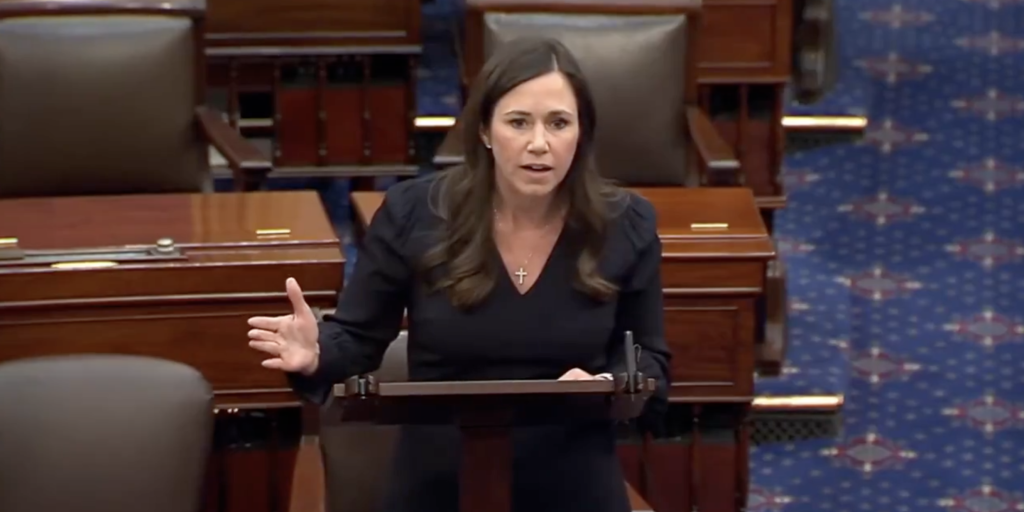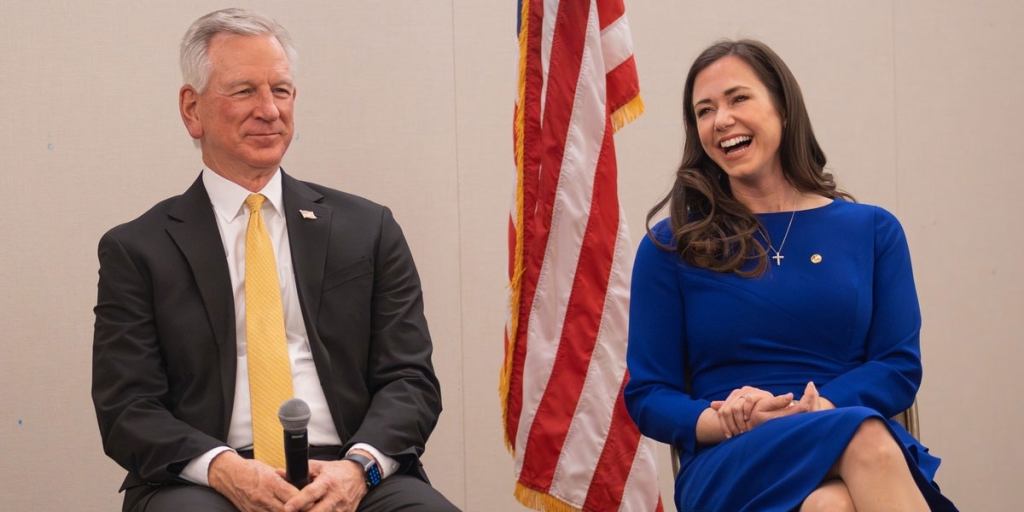Senators Katie Britt, Tommy Tuberville, Eric Schmitt, and colleagues introduced a bipartisan bill to strengthen opportunities for Americans with disabilities.
On Friday, U.S. Senator Katie Britt (R-Alabama) announced that she has joined Senator Eric Schmitt (R-Missouri) in introducing the bipartisan Ensuring Nationwide Access to Better Life Experience (ENABLE) Act. Sen. Tuberville has also signed on as a cosponsor of this legislation.
This legislation would allow people with disabilities and their families to save and invest through tax-free savings accounts while protecting eligibility to federal programs like Medicaid and Supplemental Security Income (SSI).
“The ENABLE Act would empower families, enhance economic opportunities for Americans with disabilities, and strengthen their futures,” said Sen. Britt. “Every child deserves a pathway to reach their full potential, and this bipartisan bill would equip those with disabilities and their families with additional tools to succeed. I applaud Senator Eric Schmitt’s stalwart leadership on this important issue, and I’m proud to support his commonsense legislation.”
“Every human being is created by God and has inherent dignity, including those with disabilities,” said Sen. Tuberville. “After 40 years in the education sector, I have seen firsthand how important it is for teachers, parents, community members, and Congress to work together to ENABLE these people for success. This legislation provides crucial safeguards for people with disabilities to help them invest, save, and achieve independence.”
“My son, Stephen, was my inspiration to run for office in the first place, and since that first day, I have been a staunch advocate for standing up and making life better for those with disabilities,” said Sen. Schmitt. “The ENABLE Act is a fantastic bipartisan opportunity to protect access to federal programs for those with disabilities while safeguarding their ability to invest and save. I’m grateful for the support of Senators Casey, Boozman, Welch, Kaine, Van Hollen, Tuberville, Britt, Mullin, Cotton, Wyden, and Klobuchar, and look forward to pushing this bill across the finish line.”
Additional cosponsors of the legislation include Senators Bob Casey (D-Pennsylvania), John Boozman (R-Arkansas), Tom Cotton (R-Arkansas), Markwayne Mullin (R-Oklahoma), Tim Kaine (D-Virginia), Amy Klobuchar (D-Minnesota), Chris Van Hollen (D-Maryland), Peter Welch (D-Vermont), and Ron Wyden (D-Oregon).
The ENABLE Act is supported by Autism Speaks, the National Down Syndrome Society, the ABLE Savings Plan Network (ASPN), the National Association of State Treasurers (NAST), BPC Action, the Jewish Federations of North America, and the American Network of Community Options and Resources (ANCOR).
Keith Wargo is the President and CEO of Autism Speaks.
“We are grateful for this bipartisan effort to improve the financial security of people with autism and other disabilities,” said President Wargo. “ABLE accounts are a vital tool, allowing autistic people and their families to save for expenses such as accommodations for working-age autistic adults, accessible housing and transportation, assistive technology, and raising a child on the spectrum. By permanently extending key elements of ABLE policy, the ENABLE Act will not only enhance financial opportunities for the autism community, but also empower autistic individuals to achieve greater financial independence and security.”
Sen. Britt’s office explained that there are over 162,000 Achieving a Better Life Experience (ABLE) accounts (or 529A accounts under the Internal Revenue Code). Created in 2014, these accounts allow people with disabilities and their families to save and invest through tax-free savings accounts without losing eligibility for federal programs like Medicaid and Supplemental Security Income (SSI). Individuals with ABLE accounts have saved $1.74 billion annually.
There are three ABLE provisions set to expire in 2025:
ABLE to Work: An individual with a disability who is employed can contribute an additional amount to his or her ABLE account. This additional contribution cannot be greater than either: the prior year’s federal poverty level for a one-person household ($15,060 in 2024), or the beneficiary’s yearly compensation.
ABLE Saver’s Credit: An individual with a disability who make qualified contributions to their ABLE account can qualify for a nonrefundable saver’s credit of up to $1,000.
529 to ABLE rollover: An individual with a disability may rollover from a 529 education savings account to an ABLE account that are less than or equal to the annual ABLE contribution limit are not subject to income taxation.
The expiration of these provisions would create barriers for individuals with disabilities to save for their future needs, while also likely ensuring further utilization of federal safety net programs. As Congress is one fight away from not reauthorizing these noncontroversial provisions, ENABLE enshrines these provisions into law permanently—providing certainty
To connect with the author of this story, or to comment, email [email protected]













